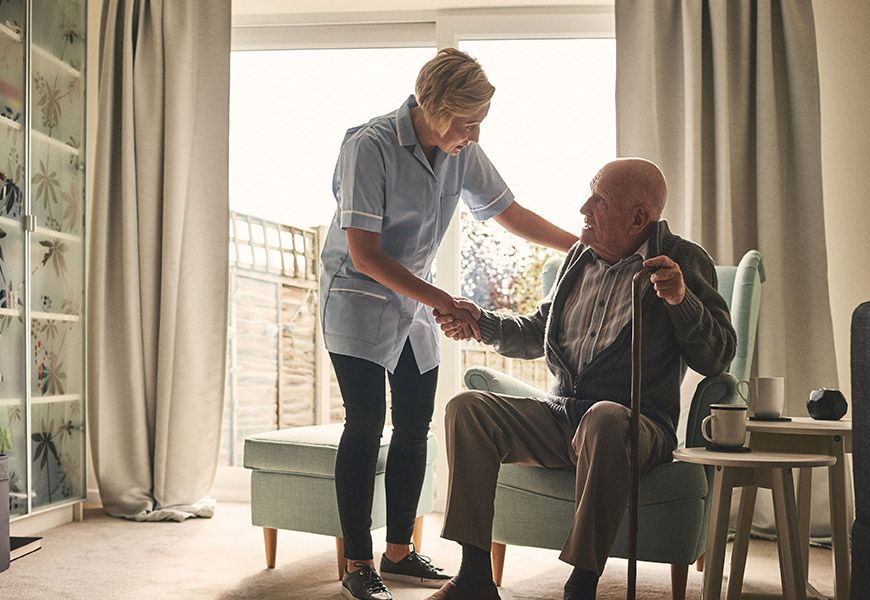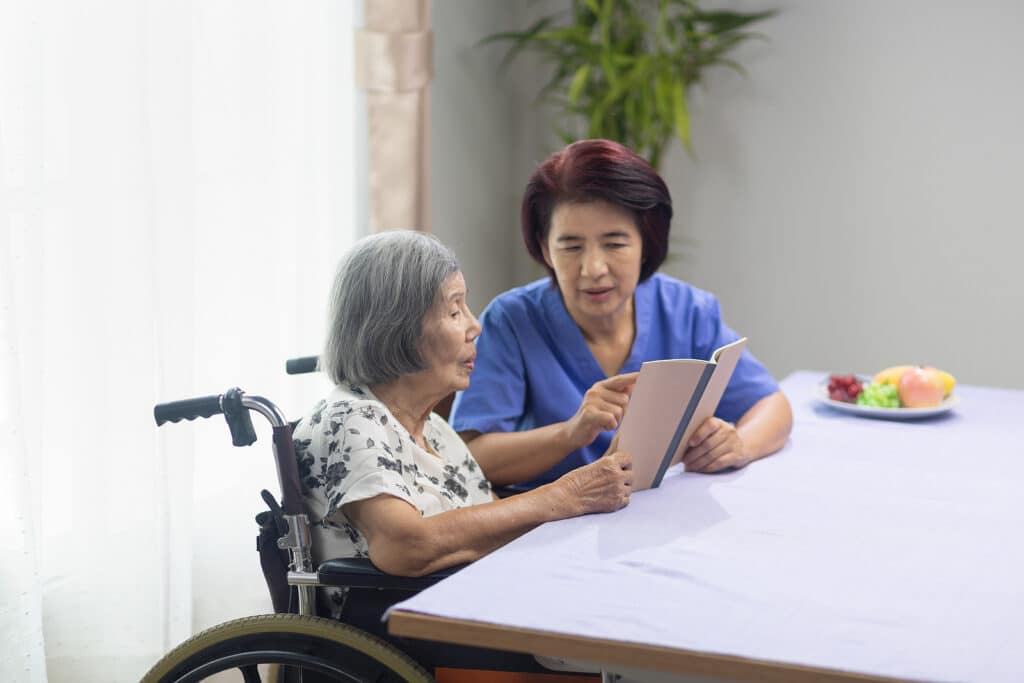 Ability to Handle Emergencies
Ability to Handle Emergencies
Emergencies can arise at any time, and a well-trained caregiver must be prepared to respond quickly and effectively. Whether it’s a fall, sudden illness, or medication reaction, caregivers should know how to assess the situation and take appropriate action, such as administering first aid, calling emergency services, or notifying family members. Their ability to stay calm under pressure and make swift decisions can mean the difference between a minor incident and a critical health situation.
Types of Caregiver Services Available for Your Loved One
Caregiver services come in different forms to meet the unique needs of individuals requiring assistance. Whether your loved one needs basic help with daily tasks, specialized medical care, or companionship, choosing the right service ensures their comfort and well-being. Understanding the available options can help you make an informed decision based on their health condition, level of independence, and personal preferences. From part-time assistance to full-time care, caregivers provide valuable support that enhances safety, independence, and quality of life.
Ensuring Quality and Accountability in Caregiver Services
High-quality caregiver services require consistent oversight and accountability. Ask how agencies monitor their caregivers, conduct background checks, and ensure ongoing training. Inquire about regular evaluations, family feedback opportunities, and Caregiver services communication channels for addressing concerns. A reliable caregiving agency should have clear policies for maintaining high standards of care and addressing any issues that arise, ensuring your loved one receives the best possible support.
Emergency Preparedness and Response in Caregiver Services
Emergencies can happen at any time, so it’s important to ask about a caregiver’s preparedness and ability to respond to critical situations. Find out if they are trained in first aid, CPR, and fall prevention. Additionally, ask about their protocol for handling medical emergencies, sudden health declines, or home safety concerns. A well-prepared caregiver can ensure quick and appropriate action, providing peace of mind for you and your family.
Respite Care
Caring for a loved one can be rewarding, but family caregivers also need time to rest and recharge. Respite care offers temporary relief by providing short-term caregiving support, allowing primary caregivers to take a break. Whether for a few hours, a weekend, or longer, respite care ensures that loved ones receive continuous assistance while family members tend to personal needs or take a well-deserved break. This service helps prevent caregiver burnout and supports overall family well-being.
 Compassion and Communication Skills
Compassion and Communication Skills
Beyond technical expertise, a caregiver must have strong compassion and interpersonal skills to provide emotional support and build trust with those they care for. Many individuals receiving care may feel vulnerable, frustrated, or isolated, and a patient, understanding caregiver can significantly enhance their quality of life. Additionally, clear and open communication with family members, doctors, and other healthcare providers ensures that care remains consistent and aligned with the individual’s needs.
 Companion Care
Companion Care
Beyond physical assistance, companion care focuses on providing emotional support and social interaction. Caregivers engage in conversation, recreational activities, and outings to prevent loneliness and isolation. They also assist with light housekeeping, meal preparation, grocery shopping, and transportation to appointments. This service is ideal for seniors who live alone or those who need companionship to stay mentally and emotionally engaged. Companion care enhances overall quality of life by fostering meaningful relationships and encouraging independence.
Assessing Compatibility and Personalized Care Approaches
A caregiver’s personality and approach to care should align with your loved one’s preferences and needs. Compatibility plays a significant role in ensuring a positive and comfortable caregiving experience. Ask how the caregiver personalizes their approach to provide emotional support, encourage engagement, and foster a trusting relationship. A compassionate and patient caregiver who respects your loved one’s routines, hobbies, and preferences can greatly enhance their overall well-being.
Scheduling, Availability, and Flexibility of Caregiver Services
Care needs can change over time, making flexibility an essential factor when hiring caregiver services. Discuss the caregiver’s availability, including whether they offer part-time, full-time, or overnight care. Ask if they can accommodate changing schedules or emergencies, such as unexpected hospital visits or increased care needs. Understanding the caregiver’s ability to adapt to your family’s evolving requirements ensures a smooth and consistent caregiving experience.
 Skilled Nursing Care
Skilled Nursing Care
For individuals with medical needs, skilled nursing care provides professional healthcare support at home. Registered nurses (RNs) or licensed practical nurses (LPNs) administer wound care, injections, medication management, IV therapy, and chronic disease monitoring. This service is critical for patients with conditions like diabetes, heart disease, or post-surgical recovery who require regular medical attention. Skilled nursing care ensures that medical treatments are properly administered while allowing patients to receive care in the comfort of their own homes.